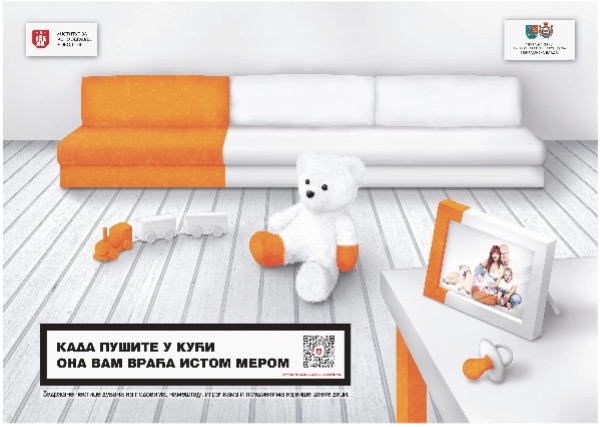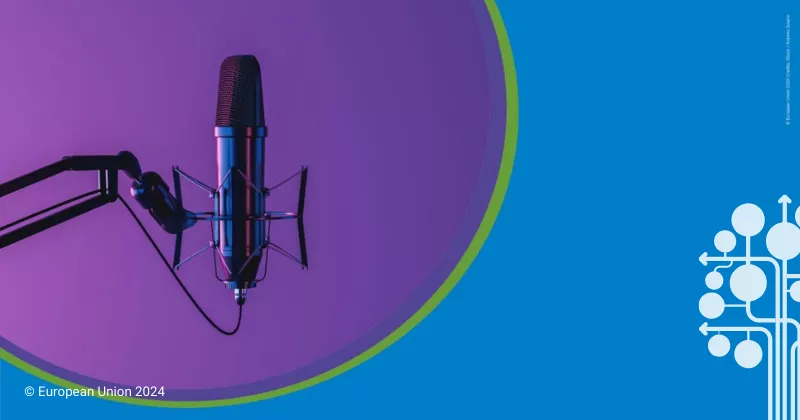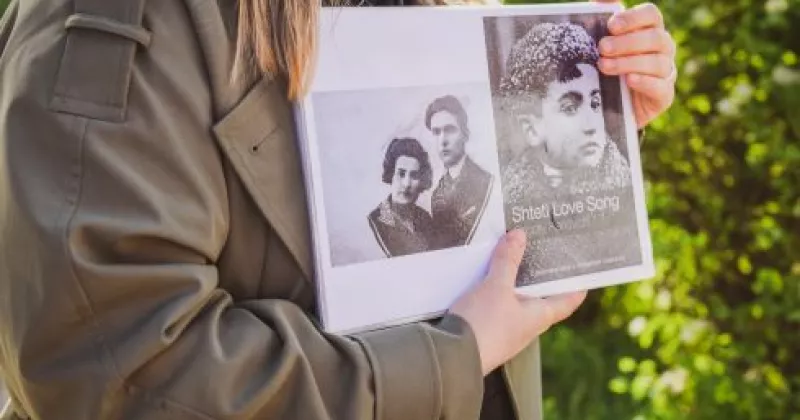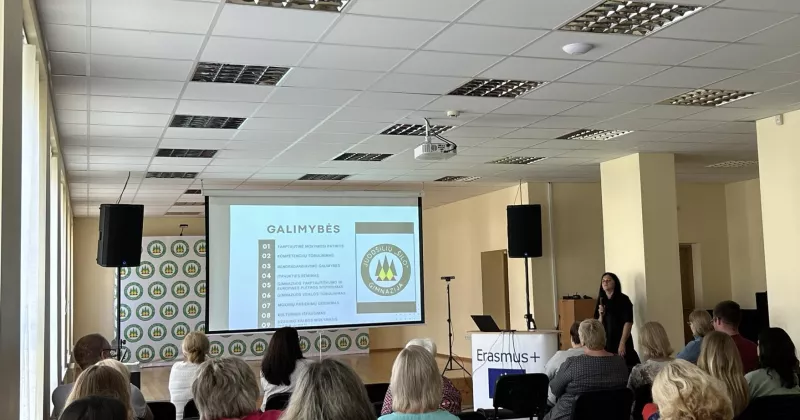EPALE Serbia interview: Improving citizen health literacy - Institute of Public Health of Vojvodina (Part 2)
The Institute of Public Health of Vojvodina is a health, scientific and educational institution, which gained experience and reputation by providing preventive health services to people, promoting their health, educating students about preventive medicine and achieving significant scientific results, ultimately becoming a prominent health care institutions outside Serbian borders.
This blog post is a continuation of the interview with doc. Dr. Snežana Ukropina, a specialist in social medicine and head of the Centre for Health Promotion at the Institute of Public Health of Vojvodina.
You can find the FIRST PART OF THE INTERVIEW at the following link.
Parents are another important target group you adapt your activities to. How do you support parents?
According to our analyses, parents usually need help acquiring knowledge and skills that can lead to healthy family behavioural patterns. When addressing parents, we often draw their attention to how important it is for them to be an adequate role model for their children, especially regarding health.
We are very proud of the presentations we have prepared for parents with children aged 0-6 within the mentioned programme task "Knowledge-based healthy choices", on the following topics: developmental characteristics of children and the importance of early stimulation; the importance of breastfeeding, personal and general hygiene and proper infant nutrition; the importance of preventive examinations (general and dental); the importance of immunisation; nutrition and physical activity of young children (2 to 6 years); preventing exposure of young children to environmental pollution (hygiene at apartments, houses and backyards, heating and cooling, prevention and protection from different sources of air pollution, noise, UV radiation); early prevention of behavioural patterns that can lead to an addiction; prevention of injuries (in the house, yard, playground, traffic) and poisoning (from drugs, housekeeping, alcohol); prevention of violence and neglect; support for the mental health of the child, mother and family (building emotional and social competence of the child and parents). We are translating our presentations into Hungarian and Slovakian this year.
Parents also reacted well to the brochure "Addiction: I don't want it to happen in my family and I'm actively working on it". Presentations for parents and teenagers are available at the website: http://izjzv.org.rs/app/prev_PAS_u_skolama/RODITELJI/ and http://www.izjzv.org.rs/app/prevencija_PAS_za_roditelje/.

What would be some of the advice to parents regarding the prevention of substance abuse?
Younger children easily learn by model and that is why there needs to be zero tolerance for cigarettes, alcohol and psychoactive substances in the family. However, if this is not possible, parents should not allow such models of behaviour to reach their children by limiting how and when they consume these substances in front of their children, removing all psychoactive substances from the children's vicinity (including tobacco and alcohol). The best idea would be for them to seek help because addictions are successfully treated when one sets their mind to it. There are also so-called non-chemical addictions: video games, gambling, betting.
Parents shouldn't lose their children's trust and they should communicate with them. This trust is built from the earliest development stages, employing stimulating parenting practices. In teenage years, it is maintained by spending free time in family activities, and communicating with their children. Children should also be gradually given appropriate responsibilities at home and encouraged to spend their free time constructively, based on their own interests and without coercion.
If a parent suspects that their child is abusing psychoactive substances, it is important to look out for changes in appearance, physiological needs, socialisation and school achievements, as well as to set boundaries with bad peer role models. Parents must be consistent, and act in mutual agreement, regardless of whether they are divorced or temporarily separated. Children should also always feel welcome and safe at home. It is better to seek expert help sooner than later, because the average length of substance abuse before the first visit to the doctor is 10 years, according to a research in Novi Sad.
How do you provide support regarding family mental health?
The Institute has had a chance to help the community by celebrating important public health dates and projects.
For the last 6 years, the Institute has been the most prominent in this field due to the Mental Health Festival, as a part of the project "United for better mental health in Novi Sad", supported by Novi Sad and the Programme Task: "Improving Family Mental Health - Support from the Beginning."
We invite readers to read texts and brochures organised in 5 thematic units (the authors are renowned university professors and psychologists) and find numerous tips about family life beginnings: "The first Years of Living Together - a Period of Harmonisation"; "How to Psychologically Prepare while Expecting a Baby?"; "Support for Families who Experienced a Miscarriage"; "Support for Families Having Infertility Issues" and "First Parenting Steps", here: https://festivalmentalnogzdravlja.rs/mentalno-zdravlje-porodice/.
The Mental Health Festival brings together organisations and institutions from Novi Sad and its surroundings, united in advocating for better mental health. The Institute of Public Health of Vojvodina initiated the Festival. The main event takes place on October 10, World Mental Health Day, and there are also various events and initiatives during the year. The first joint event was organised in 2016, and the Festival has grown and developed into a ten-day event since then, now including tribunes, round table discussions, various cultural and street events. Important social issues are raised, the position of mental health in (our) society is questioned, and free psychological and creative content is offered to everyone.
In November 2020, the Institute of Public Health of Vojvodina received recognition from the Association of Psychologists of Serbia for organising the Mental Health Festival, i.e. the "Nikola Rot" award for special contribution of institutions and organisations in promoting the psychological profession.
The Festival has always promoted harmonious, solidary and humane relations between people and the importance of the community in preserving individual mental health. The principles of community involvement and cross-sectoral cooperation seep into all activities and initiatives at the Festival.
Do you have some advice about preserving our mental health during the COVID-19 pandemic?
It is interesting that we thought of a similar expression - "Mental health during the pandemic". The Association of Psychologists of Serbia, i.e. their branch for the South Bačka District, inspired us to launch this programme at the beginning of the COVID-19 pandemic to provide information and tips on how to take care of our mental health during a pandemic: https://festivalmentalnogzdravlja.rs/mentalno-zdravlje-u-doba-korone/.
This programme involves more segments:
1) psycho-educational segment, which primarily refers to providing information in the form of short or longer texts on the Festival of Mental Health's website, and their Facebook page; this helps spread guidelines and recommendations regarding mental health, based on data gathered from the relevant literature and psychology research;
2) psychological support segment; a psychological "online" counselling centre "Let's talk from home" was launched; psychologists are available via chat and email; read more about it at https://festivalmentalnogzdravlja.rs/psiholosko-savetovaliste/;
3) creative segment, which involves designing and/or presenting content aimed at encouraging or motivating people to engage in relaxing or inspiring activities, simultaneously having a protective role, or helping people cope with unpleasant and negative experiences; and
4) research segment - the programme team initiated research about psychological functioning during the COVID-19 pandemic, and about the burnout syndrome in healthcare employees.
The Institute also provides support for the elderly in active aging. What is active aging and what are some of the activities you organise?
Active aging is a part of healthy aging, which involves more than simply not being sick. It implies that aging is viewed as a long-term investment where communities help and encourage people to make healthy life choices throughout their lives, enabling them to be fully physically, mentally and socially active during all life stages. The WHO described healthy aging as: "the ability to do things that are important to us, for as long as possible."
When working with different age groups, we try to point out the importance of bringing together all community members, regardless their age. Similarly to gender, we make sure that the generational aspect, as an unavoidable health determinant, becomes a part of all our health-educational approaches. Readers may find it interesting to read our brochure "Guide to Active, Healthy and Productive Aging", which, similarly to all other published Institute content, can be found at the link: http://izjzv.org.rs/?lng=lat&cir=0&link=4-78, that can also be accessed through http://izjzv.org.rs/, by clicking on the ''Document'', and the ''Educational resources'' section.
Another part of the Institute is the Department of Proper Nutrition. What are its main tasks?
This Department implements community and individual education on proper nutrition, early detection of diseases due to malnutrition, medical nutritional prevention and medical nutritional therapy, provides medical nutritional therapy services to all interested legal entities, provides biochemical diagnostics for all necessary biochemical factors that lead to diseases caused by malnutrition, prepares daily, weekly and monthly diet plans (menus) for all groups in various forms of public nutrition, provides professional and methodological support, provides professional, educational material, health education for health care institutions, preschool and school institutions, citizens' associations, non-governmental organisations, etc., teaches educators how to apply modern health education methods to develop knowledge and skills necessary to improve health and environmental awareness, especially within vulnerable groups, improves health and environmental culture through continuous work with the media, etc.
The Department of Proper Nutrition and the Promotion of Healthy Lifestyles works in accordance with the recommendations of the World Health Organisation and other internationally recognized organisations in the field of proper and nutrition. A part of the Department is accredited by the Institute according to SRPS ISO/IEC 17025 and all of its activities are defined by the standard.
You regularly mark important health related dates. Which would you highlight?
Based on the Programme of General Interest of the Serbian Ministry of Health, financed from the Serbian budget, subprogramme 4 ("Coordination, planning, organisation and implementation of health promotion activities, especially aimed at vulnerable groups - pregnant women, young and preschool children, school children, people over 65 and persons with disabilities"), the network of public health institutes must mark 10 public health campaigns (January 31 - National Tobacco Free Day; March - Cancer Awareness Month; March 22 - World Water Day; April 7 - World Health Day, May 13-19 - National Oral and Dental Health Week; May 31 - World No Tobacco Day; 40th week of the year - National Breastfeeding Support Week; September 29 - World Heart Day; October - the month of proper nutrition; October 16 - World Food Day and December 1 - World HIV / AIDS Day).
However, the Institute of Public Health of Vojvodina, on average, annually marks more than 25 such dates. We marked 27 of them in 2020, including 17 additional dates: European Cervical Cancer Prevention Week; January 24 - International Education Day; February 4 - World Cancer Day; March 14 - World Kidney Day; 25-31 March - World Healthy Teeth Week; May 10 - International Day of Physical Activity; May 20 - World Healthy Cities Day; June 26 - International Day against Drug Abuse and Illicit Trafficking; July 11 - World Population Day; July 28 - World Hepatitis Day; 1-7 August - World Breastfeeding Support Week; September 10 - World Suicide Prevention Day; October 1 - International Day of Older Persons; October 10 - World Mental Health Day; October 15 - World Hand Hygiene Day; October 29 - World Stroke Day; and November 18 - Day of rational antibiotics use.
We mark these dates at least by translating professional material and publications and posting them to the Institute's website and social networks (for additional campaigns). We also plan socio-marketing and other health promotion interventions, often co-financed by Novi Sad and AP Vojvodina.
This was the second part of the interview with doc. Dr. Snežana Ukropina, a specialist in social medicine and head of the Centre for Health Promotion at the Institute of Public Health of Vojvodina. You can find the FIRST PART OF THE INTERVIEW at the following link.
You can find more information about the Institute of Public Health of Vojvodina and their activities on their official website: http://izjzv.org.rs/.





